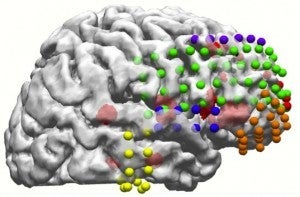Pediatric Epilepsy Surgery
 The surgical epilepsy program at COA is robust and features a full range of procedures to help children with medically resistant epilepsy (MRE). A multi-disciplinary team of 5 epileptologists, 2 neurosurgeons and more than a dozen nurses, technicians and therapists evaluate and treat children with MRE utilizing state of the art equipment including a dual camera 8 bed epilepsy monitoring unit, magnetic encephalography (MEG), Ictal SPECT, PET ROSA and Clearpoint systems for placing intracranial electrodes. Our faculty have extensive expertise in the entire spectrum of epilepsy surgery, including cortical resection, tuberectomy, minimally invasive approaches, selective and traditional temporal lobectomy, corpus callosotomy, hemispherotomy, vagal nerve stimulator placement and laser interstitial thermal therapy (LITT). Our center is recognized as a National Association of Epilepsy Centers (NAEC) level IV center of excellence. We have a robust weekly planning conference and present and operate on more than 50 children per year.
The surgical epilepsy program at COA is robust and features a full range of procedures to help children with medically resistant epilepsy (MRE). A multi-disciplinary team of 5 epileptologists, 2 neurosurgeons and more than a dozen nurses, technicians and therapists evaluate and treat children with MRE utilizing state of the art equipment including a dual camera 8 bed epilepsy monitoring unit, magnetic encephalography (MEG), Ictal SPECT, PET ROSA and Clearpoint systems for placing intracranial electrodes. Our faculty have extensive expertise in the entire spectrum of epilepsy surgery, including cortical resection, tuberectomy, minimally invasive approaches, selective and traditional temporal lobectomy, corpus callosotomy, hemispherotomy, vagal nerve stimulator placement and laser interstitial thermal therapy (LITT). Our center is recognized as a National Association of Epilepsy Centers (NAEC) level IV center of excellence. We have a robust weekly planning conference and present and operate on more than 50 children per year.
Links
American Epilepsy Society
Epilepsy Foundation
UAB Pediatric Neurology
Articles
Inside Pediatric Magazine Article: Laser Surgery Proves Effective for Some Epilepsy Patients





